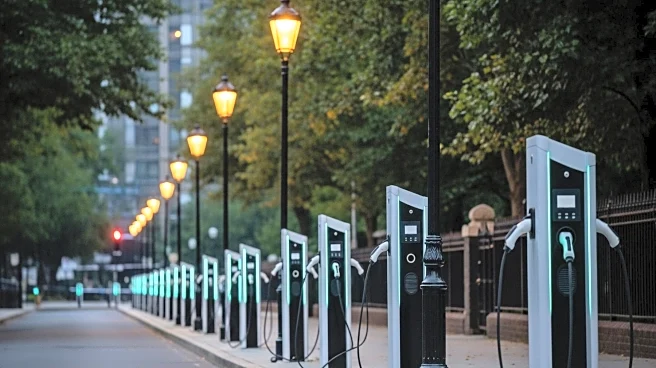What's Happening?
Researchers at Penn State have developed a framework to use streetlamps as electric vehicle (EV) charging stations, addressing the lack of charging infrastructure in urban areas. They installed 23 streetlight charging units in Kansas City, Missouri, and found them to be more cost-effective and environmentally friendly compared to traditional EV charging stations. The project, funded by the U.S. Department of Energy, aims to provide a scalable and equitable solution for EV charging, particularly benefiting residents of multi-unit dwellings who lack access to home chargers.
Why It's Important?
This initiative could significantly impact the adoption of electric vehicles in urban areas by providing a convenient and accessible charging solution. By utilizing existing infrastructure, the project reduces installation costs and environmental impact, promoting sustainable transportation. The framework's scalability means it can be adopted by various communities, potentially accelerating the transition to electric vehicles across the U.S. This development supports the broader goal of reducing greenhouse gas emissions and reliance on fossil fuels, aligning with national and global environmental objectives.
What's Next?
The researchers plan to enhance their models by incorporating socio-economic and weather data to ensure equitable distribution of charging infrastructure. This will help identify communities with limited EV access and optimize the deployment of streetlight chargers. The project's success could lead to widespread adoption of similar solutions in other cities, further supporting the growth of the EV market and contributing to environmental sustainability.










